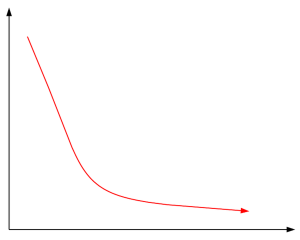 Haifa, December 18 – Israeli households struggling to make ends meet are awash with gratitude over a new and more pressing source of stress than the classic challenges of hostile regimes and populations.
Haifa, December 18 – Israeli households struggling to make ends meet are awash with gratitude over a new and more pressing source of stress than the classic challenges of hostile regimes and populations.
A national poverty report released Wednesday found that more than half of Israeli families are unable to meet their expenses, including a sizable cohort of dual-income households. The figures describe one of the worst economic situations in decades, at least as far as the middle class is concerned: the wealthy have become even more so while working families have failed to stay afloat financially, let alone prosper. Nevertheless, Israelis across the spectrum of poverty and financial pressures voiced a sense of welcome relief that the most urgent source of tension in their lives involves whether or not they can feed their children, rather than whether they or their loved ones will find themselves on the wrong end of a terrorist attack.
“We’ve come to the realization this year that we’re never going to own a home,” said Shelli Haim-Biyuv, 35, a mother of three from Hod Hasharon. “Once upon a time we could dream even of having our parents help us with the necessary down payment, but they’re in no shape to do so. It’s such a novelty to have this shattered dream occupy my mind all the time instead of worrying about the Islamic State, or failed peace negotiations, or rockets from Lebanon, I think I could get used to it.”
Oded Klum, 44, of Beer Sheva, is accustomed to the dread of sending his oldest into the IDF next year, especially since the boy’s ambition is to join a combat unit. The family could not afford to pay their electric bill last month despite the incomes that both he and his wife earn. “We had to go without heat this month so we could pay our electric bill, and I’m not sure that’ll be enough,” he said as he checked the refrigerator in vain for something other than ketchup to spread on his eight-year-old’s sandwich for school. “But at least our chief worry isn’t Hezbollah or Hamas anymore.”
Families all over the country are being forced to spend greater and greater percentages of their incomes on basic necessities, and with the shekel at a fifteen-year low, the crisis has been compounded. Rent values are calculated on a US-dollar-basis, rendering it a tall order to remain in the black and put food on the table. The economic challenge has all but supplanted Iran’s nuclear ambitions, jihadist groups sowing chaos in neighboring countries, diplomatic setbacks in the conflict with the Palestinians, ongoing Hamas rearmament, soured relations with Turkey, and a host of other ills as the chief source of concern for Israelis, and they like it.
“I’m going to vote for Bibi again for sure,” says Feyta Liszt, 28, a Rechovot mother of six. “He’s managed to take us where we’re less worried about the existential threat to us as a people than about the existential threat to us as people.” She noted that even during the economic hardships of Ben Gurion’s time the chief concerns were always military.
“So maybe can you spare some money for a family in need?” she asked a reporter.




